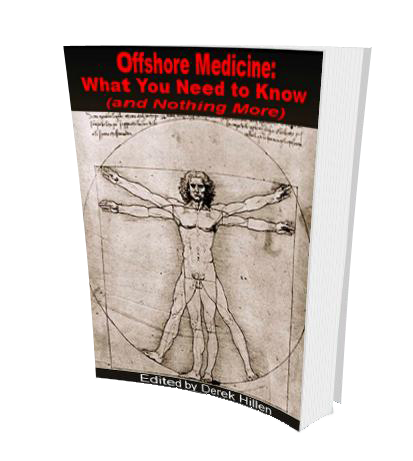- Boat
- Articles
- About
- Tehani-li Logs
- 2004
- Uligan Maldives
- Man, Oh Man, Oman
- Eritrea: The Nicest Place You’ve Never Heard Of
- Cruising Notes: Oman to Eritrea – From Pirates to Cappucinos
- Old Testament Sudan
- Egypt: Legend, Myth and Reality
- Thoughts on Cruising the Red Sea
- Greece: Civilization Again
- Montenegro
- Malta
- Sardinia, Italy
- Barcelona, Spain
- 2003
- 2002
- 2001
- 2004
- Contact
Offshore Medicine
We are made of sea water. Salt runs through our veins, our sweat and our tears. It is always with us and we feel its presence most in those powerful moments when we live with great intensity. Living on salt water takes us closer to where life began. Exploring the planet by sea allows us to remain connected to our origins and nature itself.
One part of the great beauty that is self-propelled travel by sea is the independence and freedom it bestows. The oceans are vast tabletops of potential transport opportunity that touch and connect all continents. Every time I stood on a sandy beach in California as a young man and looked out to sea I thought, Hawaii is “over there.” Those same waves lapping at my feet and gurgling around my ankles washed sandy beaches in Hawaii, in Papua New Guinea, and even came to me from afar as Asia. While these incredibly different pieces of land are represented on maps as precise isolated objects spread across a great distance, in reality, they are always touching and the ocean that seemingly divides them rather unites.
The waves caressing and alternately pounding the shoreline, repeating their timeless invitation say to those who listen, “Come, come.”Accepting that invitation at once separates the traveler from the rest of the heaving horde, which has moved inward and inland, and unites him with earlier, more inquisitive ancestors. To look at the sea and not feel a sense of wonder and adventure in the same tingling breath is as good a test as any to whether the observer is alive and living or just exists and is serving out his allotted unhappy time. To see, hear and feel that connection with the great body from where all life comes and to which returns is to reaffirm one’s minor place in the world.
And you can go to some really neat places. But the wonderful freedom engendered by ocean travel brings with it heavy responsibility, especially if sailing alone is not your thing. One cannot thumb his nose at so-called “civilization” – a word so ironic it hurts and which belongs up on the ridiculous shelf with another such word, “mankind” – and expect succor, help and rescue whenever it suits.
Self-sufficiency in manner of propulsion we have with the invention of the sail boat. In it we carry all that we need to live, and live well. Our floating cocoon contains fuel, water, food and raiment. We know how to move the sails, point the boat, navigate by the stars or GPS, cook and fix anything that breaks. And break things will. But so often we don’t count ourselves, our bodies, among those things that can – and do – break.
Aboard sailboats of any size one can find at the bare minimum: a “first-aid kit” and maybe a “first-aid book.” Both of which are usually new and unopened with the hope that comes from bringing them aboard, “There. I have checked that box. I am good to go.” We focus our attention and energies on everything else aboard; did I pack enough food, do I have spare parts for the engine, the generator, the water maker, the toilets, what about that spare GPS, did I get all my charts? Etc. And we leave to chance our health, the most important thing of all and without which, well, none of this is possible.
I speak from experience because this is how I used to sail. I was young, healthy and careful. What could go wrong? Just after getting married, my wife and I cruised for three years from Asia to Europe and only had a few scrapes and cuts to show for it; nothing more than we would have had living just as Americans in America. Then life changed. Children, bouncy, funny, loving and most, most welcomed children came into our lives. Trusting and wonderful and always in need of protection, children demand a greater level of attention and care than the mannerof living to which we were accustomed. So, I set out to learn more about this mysterious and scary subject: the human body.
My journey started with what I had learned in the Boy Scouts, so many decades ago, and from those YMCA first aid courses I had attended. I quickly came to the conclusion that no matter what the injury or emergency, the most important step in treatment was always the same:“Call the ambulance.” That was not going to be on the list of options at sea, however.
I decided to take a course in the subject of “Offshore Medicine.” This I did and I learned some amazing things. The knowledge I acquired is truly life-saving and confidence-inspiring. As it is so easy to learn (no math!), I think other sailors who feel the way I do about protecting themselves and their loved ones will benefit from learning this too. This belief led me to write down “The Knowledge” and put it into an e-book.
The content of the e-book is not original. I want to share the only great medical discovery I made – the existence of such knowledge. The e-book is of course, free. I am printing out a copy to keep on my boat and you are welcome to do the same. Send it to others whom you think might benefit and if you like, give me some feedback so I can correct any errors and omissions.
Thanks.
Derek

